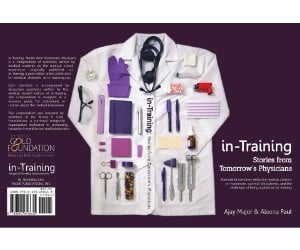The transition from eager-to-learn-everything MS3 to self-assured MS4 with a clear residency goal comes much easier for some than others. I had planned on going into Family Medicine throughout the better part of medical school, but late in third year discovered the combined specialty Internal Medicine and Pediatrics (Med-Peds). How was I supposed to explain my interest in this four year program to my friends, mentors and, toughest yet, medicine department chair when I was just beginning to understand it myself? And then the inevitable follow-up question, why not just complete the three year Family Medicine (FM) residency program? FM training remains the perfect choice for many students looking to get broad-based, comprehensive training on how to care for people of all ages. The purpose of this article is to point out the subtle differences between these residency paths and give my top five reasons for why Med-Peds (MP) is a unique, exciting and attractive residency option for about 400 budding young doctors every year.
Residency Caps: What Medical Students Should Know
Updated December 26, 2021. The article was updated to correct minor grammatical errors and technical … Read more


















